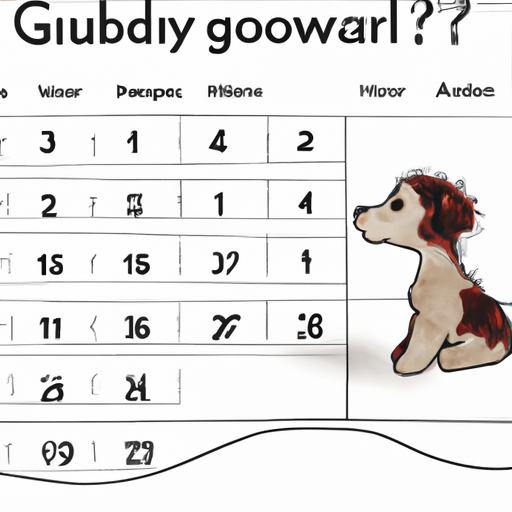Understanding Your Dog’s Growth Cycle
As a caregiver, it’s important to understand the life stages of your furry friend. Dogs, like humans, go through different stages of development. However, their growth cycle is much faster compared to ours. Depending on the breed, your precious pup will reach adulthood anywhere between 1 to 2 years of age. This developmental process can be broadly categorized into five stages:
- Puppy Stage
- Junior Stage
- Adult Stage
- Senior Stage
- Geriatric Stage
Factors Influencing Your Dog’s Ageing Process
Several factors can influence when your dog reaches adulthood. It’s not just a matter of counting up the months.
- Breed: Larger breeds tend to mature more slowly than smaller breeds.
- Nutrition: A balanced diet can help ensure healthy growth and development.
- Exercise: Regular physical activity is essential for your dog’s overall well-being.
- Healthcare: Regular vet check-ups can help detect any potential health issues early.
When Is Your Dog No Longer a Puppy?
Your dog’s first year is the most important and rapid phase of their life. By the time they are a year old, they are considered a young adult in dog years. This is when they transition from the puppy stage to the junior stage. However, they may still exhibit puppy-like behavior as they are still learning and growing, both physically and mentally.
Dog Age vs. Human Years
Ever wondered how your dog’s age compares to human years? The popular belief that one dog year equals seven human years isn’t entirely accurate. The method to accurately calculate your dog’s age in human years is a bit more complex. Here’s a simple table to help you understand:
| Dog’s Age | Small Breeds (Human Years) | Medium Breeds (Human Years) | Large Breeds (Human Years) |
|---|---|---|---|
| 1 Year | 15 | 15 | 15 |
| 2 Years | 24 | 24 | 24 |
| 3 Years | 28 | 28 | 28 |
| 4 Years | 32 | 32 | 32 |
| 5 Years | 36 | 36 | 36 |
| 6 Years | 40 | 42 | 45 |
| 7 Years | 44 | 47 | 50 |
Adult Dog Behavior
As your dog matures, you’ll notice changes in their behavior. They’ll start to calm down and their energy levels will stabilize. They may also become less interested in play and more interested in exploring their surroundings. However, each dog is unique and these changes can vary widely.
Health Considerations for Adult Dogs
When your dog reaches adulthood, there are some health considerations to keep in mind. Routine vet check-ups are crucial. Your vet may recommend certain vaccinations, dental cleanings, and may discuss spaying or neutering your pet. Regular exercise and a healthy diet are also fundamental to maintain your adult dog’s well-being.
Frequently Asked Questions
At what age is a dog no longer a puppy?
Generally, dogs are no longer considered puppies when they reach one year of age. However, they may still exhibit puppy-like behavior as they continue to mature.
How can I tell if my dog has reached adulthood?
Physical maturity, changes in behavior, and consultation with your vet can all indicate that your dog has reached adulthood.
Does breed affect when a dog becomes an adult?
Yes, breed significantly impacts a dog’s growth. Larger breeds tend to mature more slowly than smaller breeds and can take up to two years to reach adulthood.
What are some health considerations for adult dogs?
Regular vet check-ups, a balanced diet, and consistent exercise are all important for your adult dog’s health.
How does a dog’s age compare to human years?
The traditional “one dog year equals seven human years” rule isn’t entirely accurate. Factors like breed and size significantly influence a dog’s ageing process.
In conclusion, understanding when your dog becomes an adult can help you provide the best care possible for your furry friend. Remember, each dog is unique, and reaching adulthood doesn’t mean an end to fun and play. Instead, it’s just another exciting stage in your dog’s life.



